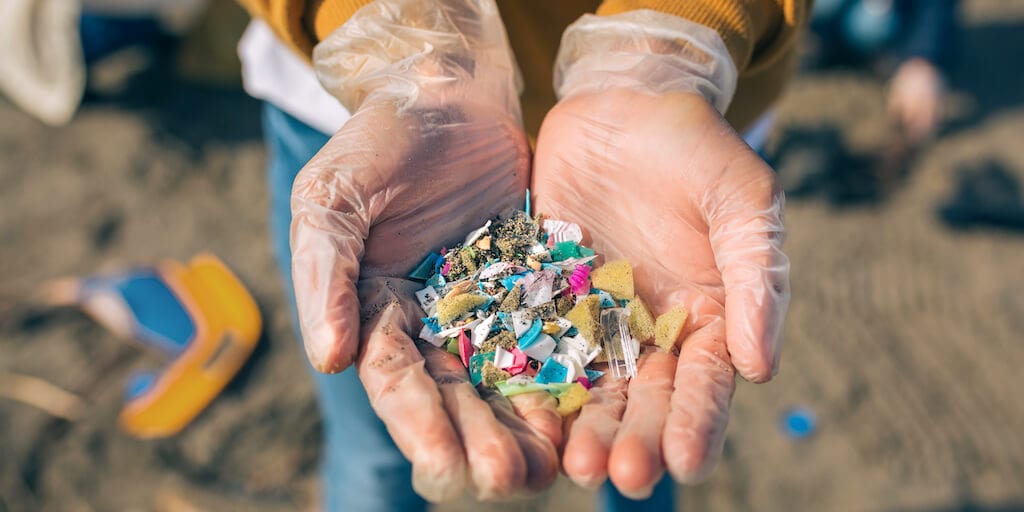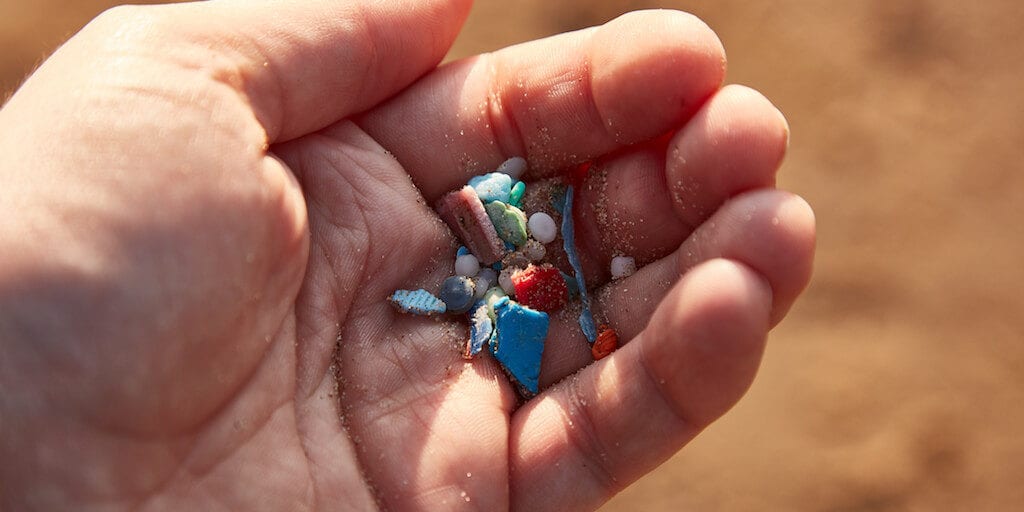
‘It is concerning that these non-biodegradable materials that are present everywhere can enter and accumulate in human tissues’
A new study has revealed that microscopic bits of plastic can be absorbed and deposited in human tissue.
Previous studies have already shown that these particles can be ingested by humans and animals through eating or drinking, as well as pass through the gastrointestinal tract.
However, the new research, by two graduate students, Charles Rolsky and Varun Kelkar, at Arizona State University (ASU), is believed to be the first study to show they can also accumulate within human organs.

Study
The Arizona research team examined 47 tissue samples from a tissue bank sourced from people with documented environmental exposure.
Using a procedure developed to extract plastics from the tissues, the researchers found traces of plastic contamination in each of the human tissue samples taken from lungs, liver, spleen and kidneys.
The research team identified bisphenol A (BPA), a common chemical used to manufacture food containers, along with polycarbonate (PC)- used make laptop and mobile phone cases, CDs, DVDs and safety glass, polyethylene terephthalate (PET)- used to make clothing fibres, plastic bottles and food containers and polyethylene (PE) in the human tissue.
“We never want to be alarmist, but it is concerning that these non-biodegradable materials that are present everywhere can enter and accumulate in human tissues, and we don’t know the possible health effects,” said study co-author Mr Kelkar.
“Once we get a better idea of what’s in the tissues, we can conduct epidemiological studies to assess human health outcomes. That way, we can start to understand the potential health risks, if any.”

Plastic hazards on human health
The implications of plastic pollution on human health has been the focus of a growing number of studies.
In a report published in the Environmental Journal last year, hormone specialist Dr Ivone Mirpuri highlighted that chemicals used to make plastic could be the underlying cause of a rising number of health disorders in people including reduced fertility to obesity, diabetes, cancer, heart attacks and neurological complications.
Previous research published in the journal Environmental Science and Technology, referenced data from 26 previous studies to show that people eat and breathe in at least 50,000 particles of microplastic a year.
While assessing microplastic pollution in city air, researchers found London, UK, having the highest level among the four cities analysed, the Guardian reported. Alarmingly, the microplastic particles were found large enough to be deposited on to the airways when inhaled.
Presenting their findings at the American Chemical Society’s (ACS) virtual expo, on Monday, study co-author Charles Rolsky said: “You can find plastics contaminating the environment at virtually every location on the globe, and in a few short decades, we’ve gone from seeing plastic as a wonderful benefit to considering it a threat.”
Share this story to let others know about the hazardous effects of microplastic pollution.
Lifestyle
Vegan culture, food, beauty & more
Is Tobey Maguire vegan? Here’s what we know
- Mohsina Dodhiya
- 17th August 2023
Tobey Maguire often speaks about veganism and animal issues. Tobey Maguire, the actor best known for playing Spider-Man in the Sam Raimi trilogy, is a vegan. He has been a vegetarian since 1992 and became a vegan in 2009. A lifelong commitment to animal rights Maguire’s decision to go vegan was motivated by his love …
Continue reading “Is Tobey Maguire vegan? Here’s what we know”
Plant-based food jobs surge with 32% growth in just 3 months
- Mohsina Dodhiya
- 17th August 2023
The number of open jobs advertised in the plant-based industry increased by almost a third from April to July 2023, GlobalData reported. The plant-based food industry is booming, and this is reflected in the number of job openings in the sector. According to data from GlobalData, the number of open jobs advertised in the plant-based …
Continue reading “Plant-based food jobs surge with 32% growth in just 3 months”
VEGAN MEMES
NEED A LAUGH?
QUIZZES
All the quizzes you love to binge!
QUIZ: If you score 11/12 on this quiz, you’re a verified vegan food expert
- Marlon Farrugia
- 10th January 2020
How much vegan knowledge do you have stored away? Do you have to Google your way through a shopping trip, or do you have all the bad E-numbers memorised? Find out now with this quiz. Marlon Farrugia Marlon Farrugia is a freelance writer from Brighton. He has been a dedicated vegan for many years, and …
Continue reading “QUIZ: If you score 11/12 on this quiz, you’re a verified vegan food expert”
QUIZ: What is your perfect Vegan Halloween Costume?
- Marlon Farrugia
- 13th October 2019
Spook Season approaches. There will be ghosts, goblins, ghouls, and glucose. You need a costume, and you want to it to show off your personality, which means VEGAN. But what to choose? Take our quiz to find out your perfect outfit. Marlon Farrugia Marlon Farrugia is a freelance writer from Brighton. He has been a …
Continue reading “QUIZ: What is your perfect Vegan Halloween Costume?”
QUIZ: What kind of vegetable are you?
- Marlon Farrugia
- 26th September 2019
“If you were a vegetable, what kind would you be?” A question that has tormented humanity throughout the ages – until now. Read: QUIZ: If you score 19/20 on THIS quiz, you’re a Vegan God Marlon Farrugia Marlon Farrugia is a freelance writer from Brighton. He has been a dedicated vegan for many years, and …
































